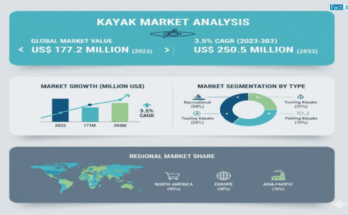The sports nutrition market is experiencing remarkable growth, propelled by a new wave of health-conscious consumers who prioritize fitness and overall wellness. This demographic seeks products that not only enhance physical performance but also align with their holistic approach to health. Brands are innovating with formulations that emphasize natural ingredients, sustainable practices, and functional benefits, catering to the evolving preferences of these discerning consumers. According to FACTMR, the sports nutrition market is projected to reach US$ 34.5 billion by the end of 2033, with an expected CAGR of 7.5% over the next decade.
Top 5 Trends in the Sports Nutrition Market
Personalized Nutrition Solutions
Athletes are increasingly turning to personalized nutrition solutions tailored to their unique physiological profiles and performance goals. This shift towards individualized approaches acknowledges that one size does not fit all when it comes to fueling athletic endeavors.
- The demands placed on athletes vary widely based on factors such as sport type, training intensity, body composition, and metabolic rate. Recognizing these nuances, sports nutritionists are leveraging cutting-edge technologies like genetic testing, metabolic profiling, and AI-driven algorithms to develop customized dietary plans.
- By analyzing genetic markers and biomarkers, experts can identify genetic predispositions and metabolic inefficiencies, allowing for targeted nutritional interventions. This precision approach maximizes nutrient absorption, optimizes energy utilization, and minimizes the risk of deficiencies or imbalances.
- Integrating data from wearable devices, such as smartwatches and fitness trackers, provides real-time feedback on energy expenditure, hydration status, and nutrient utilization. This data empowers athletes to make informed decisions about their dietary intake, ensuring optimal performance and recovery.
Functional Foods and Supplements
The rise of functional foods and supplements tailored to the specific needs of athletes is revolutionizing the sports nutrition market. These products are formulated to deliver targeted benefits, ranging from enhanced endurance and muscle recovery to immune support and inflammation reduction.
- The sports nutrition industry is witnessing a surge in the development of innovative functional ingredients, including plant-based proteins, adaptogens, nootropics, and micronutrient-rich superfoods. These cutting-edge formulations are backed by scientific research and designed to address the evolving needs of athletes across diverse disciplines.
- From pre-workout energizers to post-workout recovery shakes, functional foods, and supplements play a pivotal role in optimizing athletic performance and accelerating recovery. By harnessing the synergistic effects of key nutrients, athletes can enhance endurance, strength, and mental focus, giving them a competitive edge on the field or court.
- With an increased focus on transparency and quality assurance, athletes are gravitating towards certified sports nutrition products that undergo rigorous testing for purity, potency, and safety. Third-party certifications, such as NSF Certified for Sport and Informed-Sport, assure that products are free from banned substances and contaminants, meeting the stringent standards of professional sports organizations.
Digital Engagement and Coaching Platforms
The integration of digital engagement and coaching platforms is revolutionizing the way athletes access personalized nutrition guidance and support. These interactive tools leverage mobile apps, online platforms, and virtual coaching services to deliver tailored dietary recommendations, meal plans, and educational resources.
- Digital coaching platforms provide athletes with 24/7 access to expert guidance and support, regardless of their location or schedule. Through virtual consultations, nutritionists can conduct assessments, track progress, and adjust strategies in real time, fostering accountability and motivation.
- By incorporating gamification elements and behavioral tracking features, digital platforms encourage adherence to dietary protocols and lifestyle modifications. Athletes can set goals, track metrics, and receive rewards for achieving milestones, creating a sense of achievement and empowerment.
- Online communities and social networks enable athletes to connect with like-minded individuals, share experiences, and exchange tips and strategies for optimizing performance. This sense of camaraderie fosters a supportive environment where athletes can seek advice, celebrate successes, and overcome challenges together.
Sustainable and Ethical Practices
As consumers become increasingly conscious of environmental and ethical concerns, there is a growing demand for sustainable practices within the sports nutrition industry.
- Brands are transitioning from traditional plastic packaging to biodegradable alternatives made from organic materials such as plant-based plastics, compostable films, and biopolymers. These materials break down naturally over time, reducing the accumulation of non-biodegradable waste in landfills and oceans.
- Packaging designs prioritize materials that can be easily recycled, such as cardboard, paperboard, glass, and certain types of plastics. By choosing recyclable materials, brands encourage consumers to participate in sustainable waste management practices, contributing to circular economy initiatives.
- Some sports nutrition brands offer products in reusable containers or packaging formats that promote durability and longevity. Refillable containers and bulk packaging options reduce the need for single-use packaging and encourage consumers to adopt more sustainable consumption habits.
Also Read: Dietary Fiber Industry: Meeting the Surging Demand for Healthy Food Ingredients
Cognitive Performance Optimization
Beyond physical prowess, athletes are recognizing the importance of cognitive performance optimization in achieving peak athletic results. This trend is driving the development of nutritional strategies aimed at enhancing mental acuity, focus, and decision-making skills.
- Functional foods and supplements formulated with ingredients like omega-3 fatty acids, choline, and antioxidants are gaining popularity for their potential to support brain health and cognitive function. Moreover, Athletes are incorporating nootropic supplements, such as caffeine, L-theanine, and Rhodiola rosea, to improve alertness, concentration, and reaction times during training and competition.
- Nutrition plans now include elements of mindfulness, stress reduction techniques, and sleep optimization strategies to support overall mental well-being and resilience in the face of performance pressure.
New technologies are changing how athletes eat and perform. From personalized diets to digital tools, these advancements help athletes improve their game. By using these innovations, athletes can reach new levels in 2024 and beyond. Overall, the sports nutrition market is growing fast, fueled by people wanting products for better performance and health. Brands are adapting by innovating and focusing on sustainability and personalization. It’s a competitive space, but there are plenty of opportunities for both big and small players to succeed.



